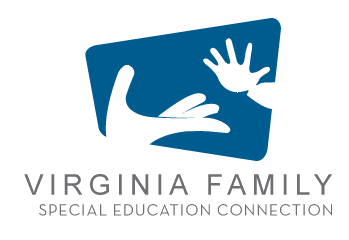Elementary School
By law, children must be enrolled in school by a particular age. When you are deciding if your child is ready for kindergarten, consider your child's unique abilities. Gather information about your child's development, i.e., communication skills, including language development and the ability to listen; social skills and the ability to get along with others; and physical skills from running and playing to using a crayon or pencil. Talk with your child's pediatrician, preschool teacher, and/or childcare provider. They can provide some useful, objective information.
It may be difficult to think about, but your child will grow up. The best thing that can be done for a child with disabilities is to help them plan for a happy and meaningful life. It’s important to consider at an early age the course your child will take to be as independent and successful as possible.
- Actively participate in their education
- Attend your child’s IEP meetings
- Educate yourself on the special education process
If there are questions or concerns there are always people to help. Talk to your child’s teacher, principal or assistant principal. Contact your local Parent Resource Center. They are there to hear your concerns.
- A Life 4 Me
- Center for Family Involvement
- Critical Decision Points for Families of Children with Disabilities (VDOE)
- Developing Your Child’s IEP (In English and Spanish)
- Enhancing and Practicing Executive Function Skills with Children from Infancy to Adolescence (Activities Guide)
- I’m Determined
- Local Disability Services (Search by County/City)
- Parent Resource Centers (Search by County/City)
- Special Education Process Resource Listing
- Supports, Modifications, and Accommodations for Students
Self- advocacy skills are essential for individuals with disabilities. Begin at an early age to work with your child advocating for what he/she needs. Educate them (and yourself) about their disability.
Parents play an important role in the education of their children. You are your child’s best advocate. You are the only permanent member of the special education team. Parents have the right to be invited to and participate in any meeting having to do with the education of their child.
- Attend scheduled meetings about your child
- Do not be afraid to ask questions and request help when you don’t understand or need help with something
- Your local Parent Resource Center and your child’s school are there to help
- A Parent’s Guide to Special Education (VDOE)
- At a Glance: Your Rights in the IEP Process (Understood)
- Center for Family Involvement
- Critical Decision Points for Families of Children with Disabilities (VDOE)
- Developing Your Child's IEP (English & Spanish) (CPIR)
- IEP/IFSP Resource List
- IEPs (Understood)
- PACER Center
- Parent Resource Centers (Search by County/City)
- Special Education Resources (PEATC)
- VDOE Training and Technical Assistance Centers (Search by County/City)
Determining if your child needs accommodations and what those accommodations might be is an IEP team effort. Do some research to learn more about supplemental aids and services available for your child. Contact your local Parent Resource Center for information and resources that may help you determine what supports might help your child in the classroom. Bring your thoughts and resources to the IEP meeting. Don’t be afraid to ask questions.
You may want to talk to your child’s teacher and have her explain how they determine if your child is “on grade level” or not. Ask what you can be doing to help your child. Learning should not be about where your child stands compared to another student, but how far your child can go. What's important to remember is that learning is a process. It's not about whether they are getting the material immediately or can instantly apply the skills, but how they are progressing.
These are important questions to ask even at the elementary level. It is never too early to plan for the future. Keep in mind that the track they take at this point can determine their program of study after they leave elementary school.
- Alternate Assessment (VDOE)
- Critical Decision Points for Families of Children with Disabilities (VDOE)
- Graduation Resources (VDOE)
- Other Diplomas and Certificates
- Standards of Learning (SOL) & Testing- Participation & Inclusion
- Secondary Transition: Why it is important to plan early
- Testing Accommodations for Students with Disabilities & Accommodations for Student with Disabilities Resource Documents (PEATC)
Puberty can be a time of mixed feelings for parents and pre-teens. It may be a time of pride and celebration, as well as a time of worry and confusion. It is hard for pre-teens to understand the many changes that come along with puberty. Also, parents may feel unsure of how to explain these changes to their child.
- ATN/AIR-P Puberty and Adolescent Resource: A Guide for Parents (Autism Speaks)
- Let’s Talk About Sex: Students with Disabilities and their Sexual Health (A Toolkit for Parents of Students with Disabilities) PEATC
- Teaching Children with Down Syndrome about Their Bodies, Boundaries, and Sexuality
- The Healthy Bodies Toolkit (Vanderbilt Kennedy Center) (English, Spanish, Portuguese, Turkish and Thai versions)
Mental health refers to our cognitive, behavioral, and emotional wellbeing - it is all about how we think, feel, and behave.
- Child and Adolescent Mental Health (National Institute of Mental Health, NIMH)
- Free Educational Brochures - Mood Disorders: Depression and Bipolar Disorder (Depression and Bipolar Support Alliance, DBSA)
- Mental Health Resource List
- SAMHSA (Substance Abuse and Mental Health Services Administration)
- Virginia Family Network (VFM), Program of NAMI Virginia (The NAMI Virginia website is available in Arabic, Chinese, English, Filipino, French, German, Hmong, Italian, Japanese, Korean, Lao, Persian, Polish, Punjabi, Russian, Spanish, Thai and Vietnamese.)











